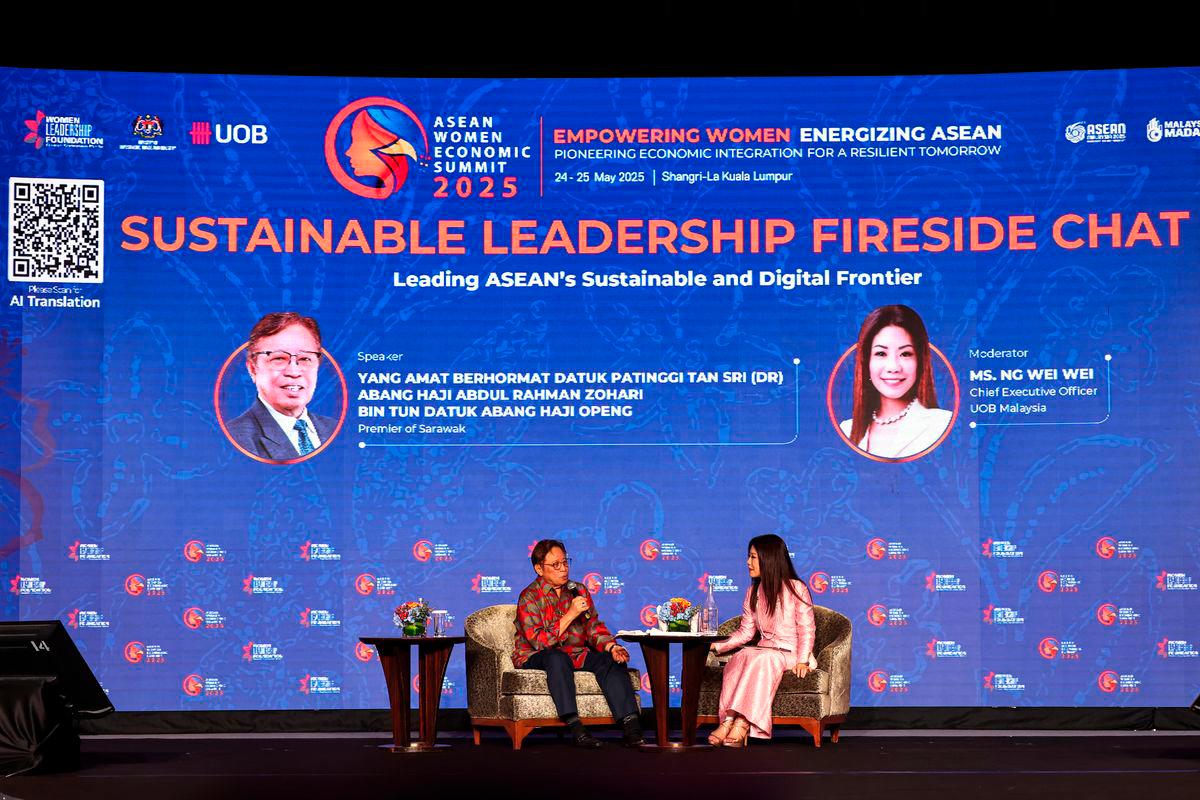KUALA LUMPUR: Sarawak is stepping up plans to deeply integrate into the ASEAN Power Grid, said Sarawak Premier Tan Sri Abang Johari Tun Openg.
He said the East Malaysian state has been supplying electricity to West Kalimantan, Indonesia, for the past six years, and it is currently in the process of supplying electricity to Brunei.
“Prime Minister (Datuk Seri Anwar Ibrahim) has asked me to study the possibility of supplying power from Sarawak to Sabah and to connect to Brunei.
“Sarawak will play its part to contribute to the ASEAN Grid,“ he said at the Sustainable Leadership Fireside Chat-Leading ASEAN's Sustainable and Digital Frontier at the ASEAN Women Economic Summit 2025 (AWES 2025) held at a hotel (Shangri-La) here today.
Abang Johari said Sarawak is also actively enhancing its grid infrastructure to strengthen power distribution across the state and beyond.
Sarawak has targeted to generate 10 gigawatts (GW) of energy production by 2030 and 15 GW by 2035.
The session was moderated by UOB Malaysia Chief Executive Officer (CEO) Ng Wei Wei.
UOB Malaysia is the main sponsor of AWES 2025, with Kuok Brothers Sdn Bhd as the empowerment partner.
On women and leadership, the Premier said the role should be assigned based on merit and qualifications, rather than gender, while societal acceptance of women as leaders is crucial in the right step forward.
Citing examples, he said India’s Indira Gandhi and Pakistan’s Benazir Bhutto who had served as prime minister in their respective country had shown that despite societal biases, effective leadership can rise above gender-based limitations.
He also said the societal acceptance of women in leadership roles is crucial, as some Asian cultures still face gender bias, but examples like Indira Gandhi and Benazir Bhutto show that change is possible.
The two-day inaugural AWES 2025, which began Saturday, was held on the sidelines of the 46th ASEAN Summit, held under Malaysia’s 2025 Chairmanship. It was attended by over 700 delegates representing government, business, and civil society across ASEAN.
Themed “Empowering Women, Energising ASEAN: Pioneering Economic Integration for a Resilient Tomorrow”, AWES highlighted the urgent need to position women at the forefront of ASEAN's economic transformation, particularly in addressing current challenges such as global tariff wars, digital transformation, and sustainable development.
It also featured discussion and strategic brainstorming sessions, leadership lab and mentorship programme









